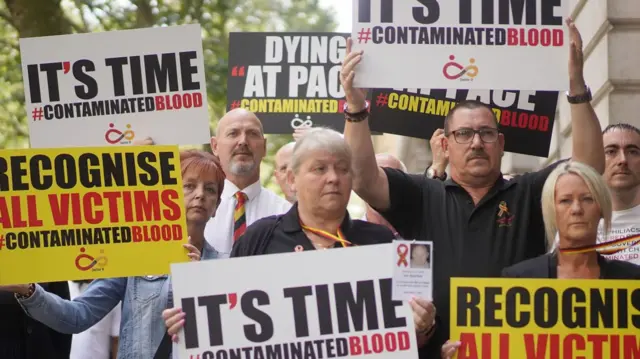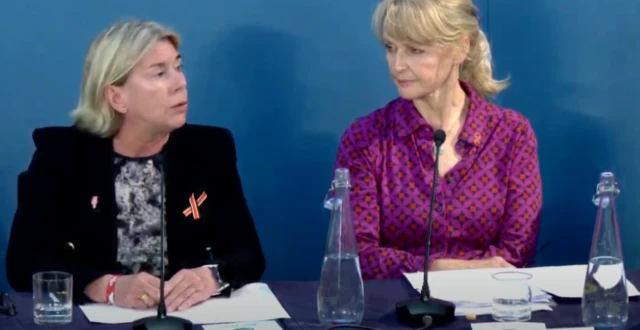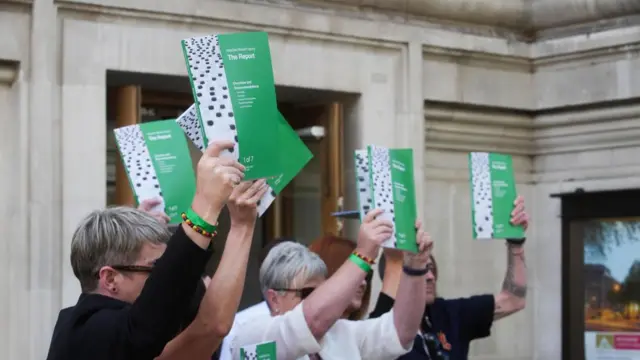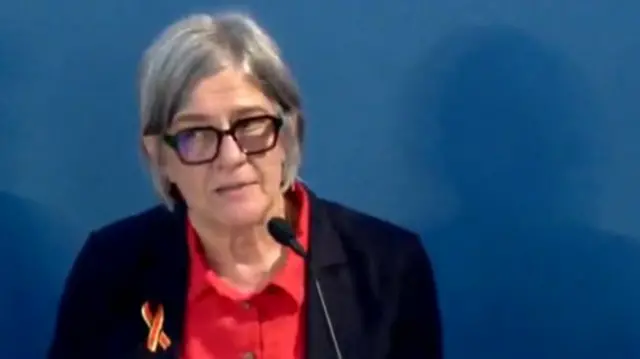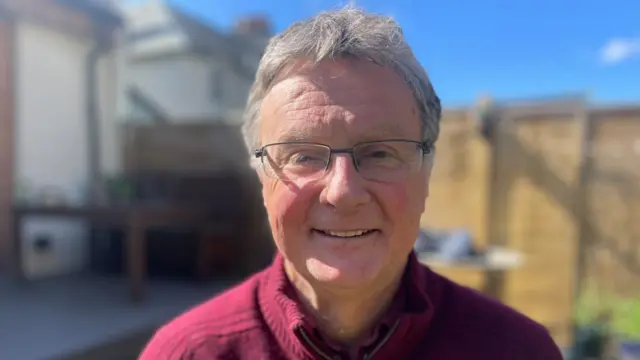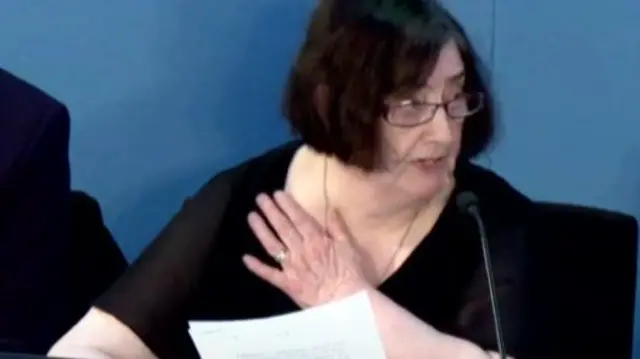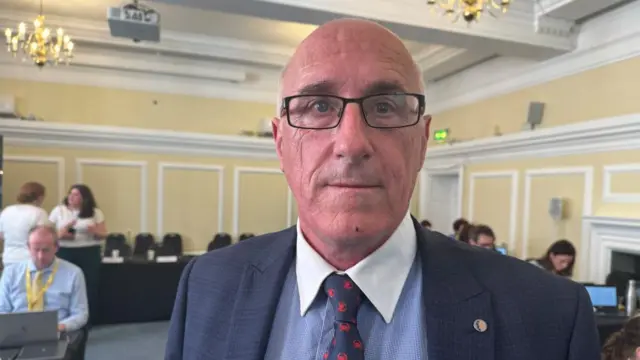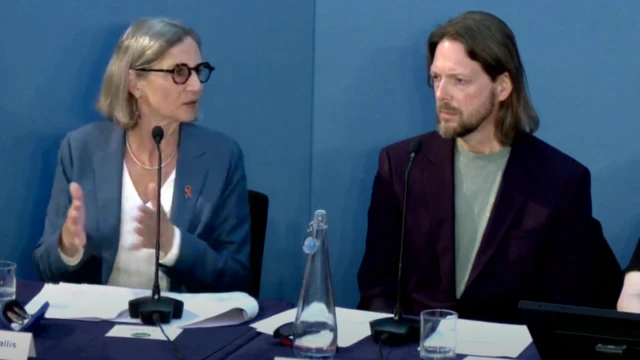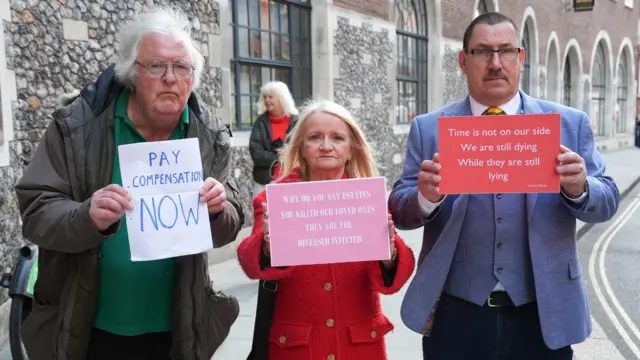Inquiry thanked for compassion, understanding and friendshippublished at 13:19 British Summer Time 7 May
 Cachella Smith
Cachella Smith
Reporting from the inquiry
Many of those in the room just took to their feet with the largest round of applause I've heard this morning.
Campaigner Andrew Evans thanks the inquiry and its chair, Brian Langstaff, for the "compassion, the understanding, the friendship and the foresight" to keep the inquiry open.
Evans says over the years this community "has had very few friends".
He adds they were "made to feel dirty" and "told it didn't happen".
"That changed on 20 May last year," he tells the inquiry now - referencing the date the inquiry's final report was published.
